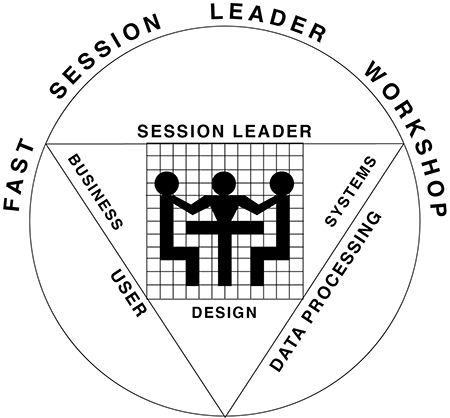January 2001

Marketing Your Skills | Gary rush, IAF CPF
Introduction
In my classes, one question arises that seems to stump many students and their organizations - "How do we sell our services?" In my FAST Newsletter - Getting Facilitation Accepted, I discussed how to get facilitation accepted in your organization. This time, I'll focus more on how to get clients (internally and externally) to hire you as a Facilitator.
First of all, know what you are selling. If your potential client doesn't know why facilitated workshops are beneficial, you may need to sell that concept first. If they understand the benefits of facilitated workshops, then you need to sell your ability as a Facilitator. Let's look at both scenarios.
Selling Facilitated Workshops
When clients don't know the benefits of facilitated workshops, you need to sell more than just a workshop. You need to sell the entire process and why your implementation of the process is better than what the client was using. In other words, in the past, they used various processes to gather requirements, design systems, and develop strategic plans, etc. Why weren't those processes working? They need to understand that the process you bring will get them to the proper solution. You need to show:
- The process produces a deliverable that is meaningful to the client.
- The process works better when more people are involved.
- Serial interviewing is filled with potential errors, rework, and missed opportunities.
- Following your process will improve productivity and quality - often by a factor of 4 to 1.
When selling the need for workshops, sell the need for a particular deliverable (strategic plan, requirements document, etc.). Once the client decides on a certain deliverable, sell your overall process and understanding of how to produce a deliverable. Then, just slide the workshop process in as a means to gather the information.
Selling Your Ability
I have been selling my Facilitator ability for 17 years. There are two major criteria that clients use in selecting Facilitators:
- The facilitator's ability to structure a process to produce the desired deliverable.
- The facilitator's ability to listen.
The first criterion is important in assuring the client that they will get what is wanted. They need to know that they will walk out of a workshop with a useful, quality deliverable. To do that, clearly articulate the process and show an example deliverable - either one done earlier or sketch one as an example. Once they know that you understand the process to produce the deliverable, then sell them on your ability to get there by using your listening skills.
Listening
Listening is the most important skill that a Facilitator has. It makes the difference between an okay Facilitator and a great one. Before you begin preparation listen to the client and let them know you heard what was said. Good active listening is important in understanding the client's desired deliverable. If you listen to what is said and suggest a process that clearly meets their need, the client will believe that you can produce the result. Do not have a preconceived idea of what to do before you meet the client. Do not try to fit what they want into a process or workshop that you know just because you know the process. Listen and select the right process or adapt one - appropriately - to clearly produce their deliverable - and nothing more. Too often, consultants, internal and external, have a preconceived idea of what to do and work the client around to their way of thinking. Instead, work yourself around to the client's way of thinking. To listen well, do the following:
- Make contact with the client by paying attention to the client. Focus eye contact on the person speaking.
- Absorb what is said. Don't judge or evaluate. Don't have a preset set of questions. Listen to ask the right questions.
- Feedback what was said - before you ask any questions. Use their words and phrases.
- Get confirmation from them that you heard correctly - correct it if you didn't.
Summary
So, sell the overall process first. Then sell your ability by understanding the deliverable and showing that you listen well. Remember, make contact, absorb, feedback, and confirm are the steps to listening well. Good listeners get hired - because the client is comfortable that they will get what they want. ![]()

